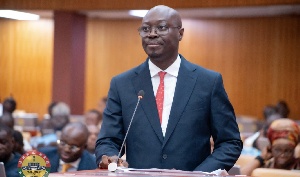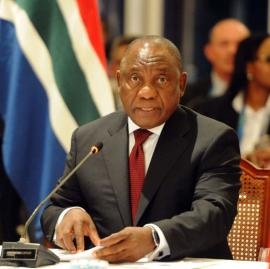Business News of Thursday, 5 June 2025
Source: www.ghanawebbers.com
Alliance for Development & Industrialisation supports new energy sector levy
The debate over the new Energy Sector Amended Levy continues. Parliament approved the bill earlier this week. Dr. Richard Danso, CEO of the Alliance for Development & Industrialisation (ADI), supports the new tax. He believes it is necessary due to the financial issues inherited by President Mahama's administration.
The new levy, passed on June 3, imposes a GHc1 charge on every litre of petroleum sold in Ghana. This aims to raise an additional GHc5.7 billion to address the energy sector’s debt, which was US$3.1 billion as of March 2025.
Finance Minister Dr. Cassiel Ato Forson stated that at least US$3.7 billion is needed to retire this debt. The debt continues to grow, and an extra US$1.2 billion is required for fuel supply to thermal power plants this year.
Dr. Danso noted that paying a GHc1 levy per litre is reasonable given recent savings from cedi appreciation against the dollar. He emphasized that stable electricity supply depends on resolving this debt issue.
He warned that without reliable power, job creation would suffer, especially for youth in Ghana. The economy cannot improve sustainably without increased productivity and stable electricity.
Dr. Danso also highlighted that regular electricity is crucial for competitive exports in international markets. If not addressed, this could harm the cedi’s exchange rate and erase current savings on petroleum prices.
“This is common sense,” he said. “We can either pay the GHc1 levy or risk returning to ‘dumsor’.” He stressed that losing these savings would outweigh the cost of the levy.
Dr. Danso urged Ghanaians to trust their government regarding how revenue from the levy will be used. He acknowledged concerns about past failures to resolve energy sector financial issues.
He mentioned that ESLA was introduced in 2015 with promises it would eliminate energy debt within five years but has continued for a decade with rising debts instead.
The current government claims its predecessor misused ESLA funds for other purposes, leading to today’s situation.
While Dr. Danso agrees that the new levy addresses immediate financial gaps, he acknowledges critics' views that it is only a temporary solution.
The energy sector faces several challenges: inadequate cost structures for diesel imports, high transmission losses up to 40%, inefficient billing by ECG, and recent corruption issues within state-owned electricity retailers.
To tackle these problems, the government plans private participation in ECG's metering and billing processes despite opposition from some groups. They also aim to rely more on cheaper gas rather than diesel for thermal generation.











